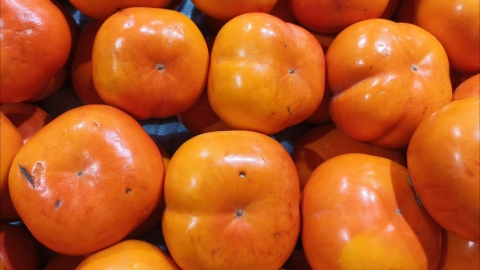Can persimmons and lychees be eaten together?
Generally speaking, persimmons and lychees can be consumed together, as long as the intake is moderate. Detailed analysis is as follows:

Lychees are rich in glucose, sucrose, vitamin C, protein, and other nutrients. Vitamin C enhances immunity and promotes collagen synthesis, while glucose and sucrose quickly replenish energy and help relieve fatigue. Persimmons contain pectin, various minerals, and carotenoids. Pectin helps promote intestinal motility and prevent constipation, while carotenoids have antioxidant properties that protect vision and delay aging. Consuming them together satisfies the palate's dual craving for juicy sweetness and soft, sweet textures, while also allowing the intake of various vitamins, minerals, and dietary fiber, thereby achieving balanced nutrition and improved physical health.
However, lychees are high in sugar, and excessive consumption may cause blood sugar fluctuations and symptoms of excessive internal heat ("heatiness"). Persimmons contain tannic acid, which, when consumed on an empty stomach or in large quantities with high-protein foods, may react with stomach acid to form persimmon stones. Therefore, they should not be eaten on an empty stomach and should be avoided with high-protein foods such as milk and crabs. By controlling the amount consumed, eating after meals, and paying attention to pairing with other foods, one can safely enjoy the deliciousness and health benefits of combining these two fruits.





